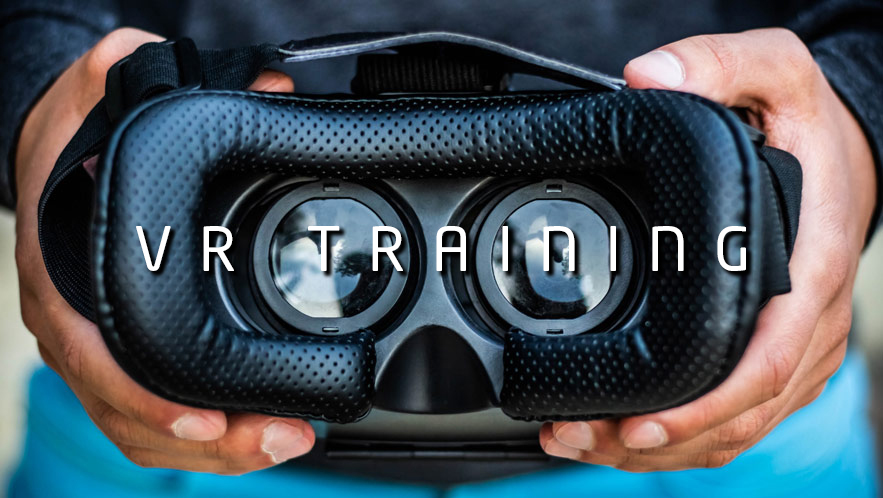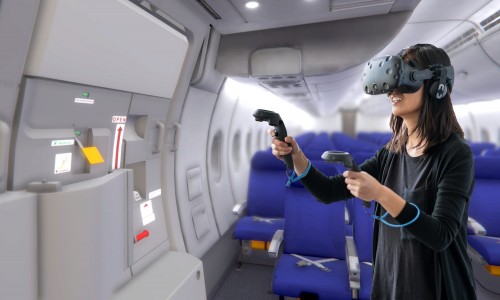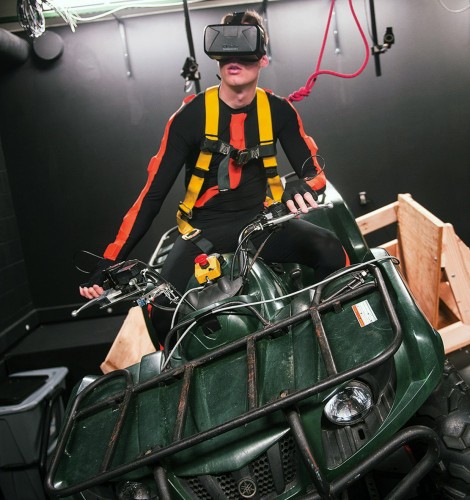The Importance of VR in Training Employees

The Importance of VR in Training Employees
Virtual Reality is a new way to train employees and it is becoming more common in the business world. Employees who use VR for training purposes have reported that it increases retention rates, provides an experience that simulates real-life more accurately than traditional methods of training like PowerPoint presentations, and stimulates memory recall by recreating scenarios where the user will have to remember information, they learned in order to succeed.
What is VR?
When someone has a VR headset, they are able to view an artificial environment in 360 degrees. They can feel as if they are immersed in the environment and can interact with the virtual objects in front of them. It’s a new way for people to enjoy entertainment and offers a new way to learn certain skills.
How VR can help law professionals?
VR is being used by law professionals to help their clients visualize the outcomes of the cases they are considering. For example, a lawyer who specializes in personal injury law can use VR to show clients what it would be like if they were involved in an accident that resulted in significant injuries. The lawyer can show the client what life will be like with physical limitations, how much it would cost to take care of medical expenses, and more.
Additionally, VR can be used to train law professionals on various legal topics without having to spend time and money on mock trials or other expensive training sessions. The lawyer could simply create a VR experience that includes all the things a lawyer needs to know about family law, for example. This would save them time and money that could otherwise be spent on other areas of their work.
In addition to these benefits for lawyers, there are a number of ways virtual reality can improve employees’ performance no matter what industry they are in.
How VR can help athletes?
VR is being used to train athletes and help them improve their performance. Athletes can use VR to simulate game-like scenarios in a controlled setting. This increases the athlete’s ability to react quickly while under pressure, which is vital in many sports.
One example of this is found in military training. Soldiers are trained on how to react during different combat situations with virtual reality simulations. These simulations provide a more realistic experience than what soldiers are used to coming from traditional training methods like lectures or manuals. This type of training helps soldiers avoid the dangers that come with live-fire exercises.
VR also provides an accurate perspective for astronauts as they prepare for space missions or construction workers who need to know how to move around high places without falling off the building and injuring themselves.
It's worth considering how VR can help your employees learn more effectively!
How VR can help soldiers?
VR is being used to help soldiers overcome post-traumatic stress disorder, a condition that can occur when people experience extreme trauma. One study found that VR was more effective than traditional therapy for treating PTSD in veterans.
Virtual Reality has been introduced to the world as a new way to engage in shopping, gaming, and other activities. VR is also being used for training purposes and is becoming more common in the business world. From lawyers, athletes, and soldiers, to educators and doctors, this technology can be used in various industries. And if you want employees who are on the cutting edge of their industry, it’s worth considering how VR can help them learn more effectively.
In addition to providing a perspective that simulates real-life more accurately than traditional methods of training like Powerpoint presentations or videos only offer a movie-like experience, VR provides additional benefits. It stimulates memory recall by recreating scenarios where the user will have to remember information they learned in order to succeed. This makes it easier for the user to recall what they learned during training sessions outside of their work environment.
If you want your employees to be successful in a dynamic work environment, keep reading!
How VR can help educators?
VR technology is being used to help educators prepare students for new experiences. For example, a teacher could design a virtual field trip that takes students to locations they might not be able to visit in person. This can help provide a more immersive experience for the student and give them an opportunity to learn about the world outside of their classrooms.
The same idea can be applied to other educational topics. In one example, VR was used for training teachers on how to use VR equipment. The teacher would put on a VR headset and use the simulated equipment provided in order to understand its functionality before going into the classroom with real students.
VR also provides benefits in medical settings as well as it can create realistic scenarios that are used to teach doctors or surgeons how to react during emergency situations or other challenging moments when they may need quick responses.
How VR can help doctors?
VR can help doctors by giving them the opportunity to train for real-life scenarios in simulated environments. For example, a doctor can use VR to learn how to perform surgery before they ever do it in real life. They can practice and get better at their skills before they have to use them on an actual patient. They can also use VR as a refresher course when they’re feeling rusty or out of practice with their skills. It’s like getting a chance to brush up on what you’ve learned or take another class without having to leave your current job.
In fact, some hospitals are using VR for training purposes! Doctors practicing surgery would wear a headset and see 3D replicas of organs like the brain, heart, and kidneys inside their field of vision. This helps them visualize what it is that they are operating on so that if something goes wrong during the procedure, they know where exactly it is in the body and know how best to fix it without having to fumble around blindly.
Doctors are only one profession that benefits from VR training sessions. Read on for more examples!
Virtual Reality vs. Augmented Reality
Virtual Reality (VR) and augmented reality (AR) are both important in training employees. However, VR offers some benefits that AR doesn’t.
One of the most significant benefits of VR is the ability to recreate a scenario that simulates real-life more accurately than traditional training methods. Traditional methods like Powerpoint presentations or videos only offer a movie-like experience. VR recreates scenarios where the user will have to remember information to succeed, making it easier for the user to recall what they learned during training sessions outside of their work environment.
In addition to these benefits, VR has been shown to boost memory recall and sharpen focus, which improves performance on difficult tasks. For example, one study found that after experiencing a highly immersive virtual environment for just 10 minutes, people’s spatial awareness increased by 30%.
The use of AR is also important as it gives users access to data from different perspectives. If you want your employees to be successful in a dynamic work environment, keep reading!
Conclusion
Virtual reality is quickly becoming a game-changer in the way people learn. Whether you are a law professional, athlete, soldier, educator or doctor, there is a way that VR can help you. As the technology continues to advance and the world becomes more dependent on it we can expect to see many more benefits that VR has to offer.
In the healthcare industry, for example, VR has been proven to reduce pain and anxiety for patients and it has been shown to be an effective treatment for phobias. With its ability to help so many different people with so many different things VR is proving to be a key tool in training employees.







 Call
Call
 Mail
Mail